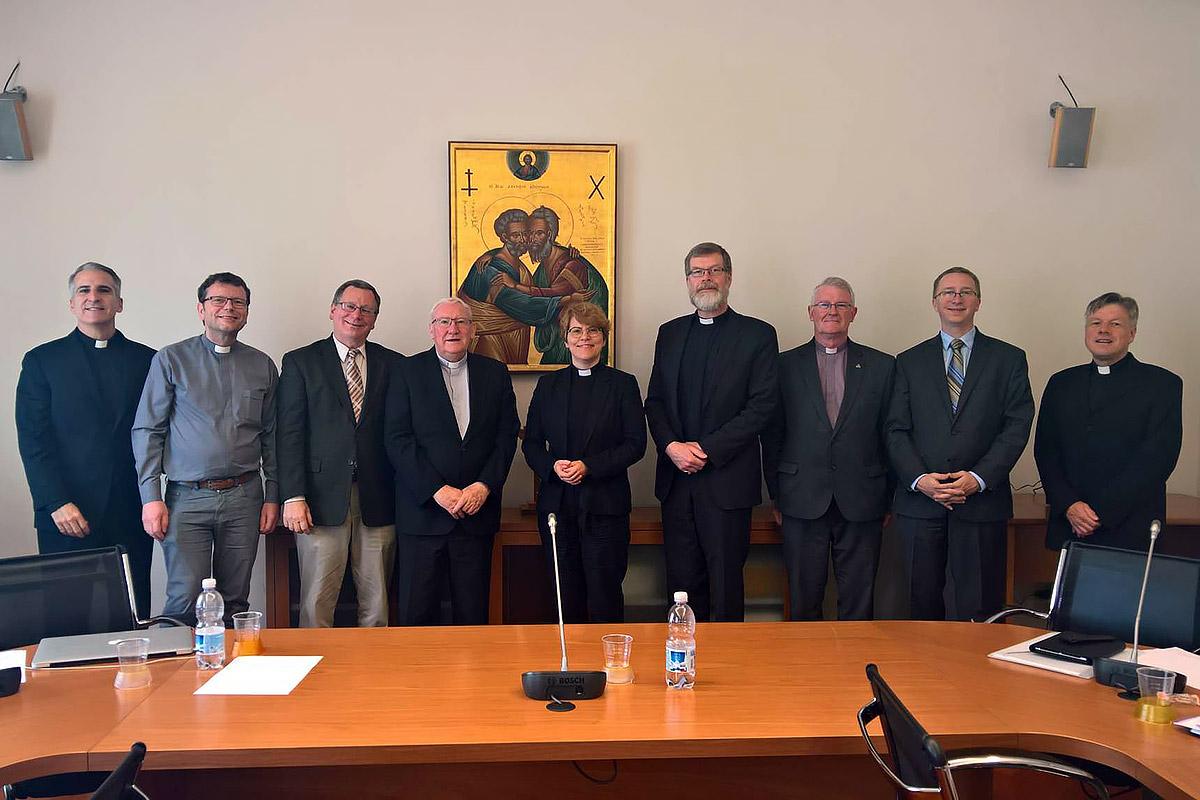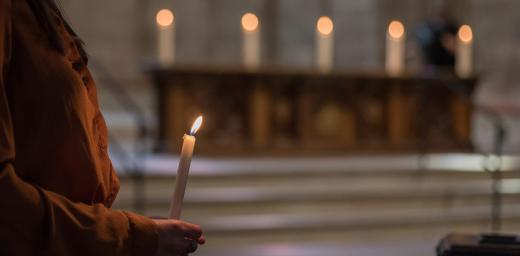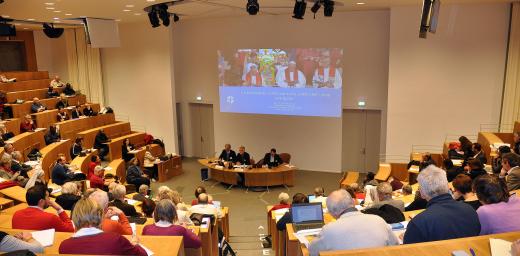“Healing the wounds in the body of Christ”

Representatives of the five churches who signed the JDDJ in Rome. Photo: LWF
Five signatories of JDDJ to discuss implications for church life
(LWI) The Lutheran World Federation (LWF) together with the Pontifical Council for Promoting Christian Unity (PCPCU), as well as the Methodist, the Reformed and the Anglican communion will start a consultation process to discuss spiritual and ecclesial implications of the Joint Declaration on the Doctrine of Justification.
“We have now five signatories of this ecumenical declaration,” says Kaisamari Hintikka, LWF Assistant General Secretary for Ecumenical Relations. “We feel we are called to ask together what kind of spiritual and ecclesiastical consequences the JDDJ might have for our churches.”
Milestone in ecumenical dialogue
The signing of the Joint Declaration on Doctrine of Justification in Augsburg in 1999 was a milestone in the Catholic- Lutheran dialogue. It was built on 30 years of continuous ecumenical dialogue between Lutherans and Catholics.
On 18 July 2006, following an internal process, the World Methodist Council, meeting in Seoul, South Korea, voted unanimously to adopt the Declaration. In July 2017, the World Communion of Reformed Churches formally associated with the Declaration at an ecumenical prayer service in Lutherstadt Wittenberg, Germany; and the Anglican Communion affirmed and welcomed the substance of the Declaration in the meeting of the Anglican Consultative Council in April 2016 and publicly signed it at a prayer event at Westminster Abbey on 31 October 2017.
On 31 October 2016, Lutherans and Catholics jointly commemorated the Reformation anniversary in Lund, Sweden, presided over by Pope Francis together with the leadership of the Lutheran World Federation, as well as with their ecumenical partners on the worldwide level.
“We are witnessing momentum in our shared ecumenical journey,” Hintikka says. “This consultation is meant to appreciate and to use that gift, which calls us to healing the wounds in the body of Christ.”
We are witnessing a certain momentum in our shared ecumenical journey. This consultation is meant to appreciate and to use that gift, to heal the wounds in the body of Christ.
Manifest the growth in communion
The consultation was planned at a meeting of the five signatories in Rome, Italy, and will take place in March 2019. It will also feature a public lecture or panel discussion about ecumenical relations.
“This consultation will be the beginning of a process, that aims to respond to the aspirations of the people in the pews,” Hintikka says. “We want to offer our churches recommendations in order to grow in communion.”





